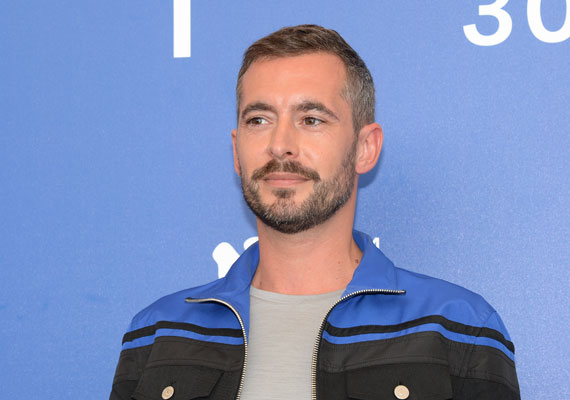Xavier Legrand • Director
“This film is a political act”
by Marta Bałaga
- VENICE 2017: After his Oscar-nominated short, actor-turned-director Xavier Legrand once again explores the subject of domestic violence in Custody

In Custody [+see also:
film review
trailer
interview: Xavier Legrand
film profile], presented in the main competition of the Venice Film Festival, French filmmaker Xavier Legrand shows the struggles of a woman trying to break away from a violent husband. After the justice system turns a deaf ear to her pleas, Miriam (Léa Drucker) once again finds herself subjected to Antoine’s (Denis Ménochet) outbursts. And so do her children.
Cineuropa: It’s hard to imagine your film being any simpler. Why did you decide to keep it that way?
Xavier Legrand: It had to do with the fact that I am dealing with a difficult subject here. It’s a story about a man trying to obtain his goal. He does so by constantly manipulating other people – even his own child. When he realises it’s pointless, that he can’t go back to his wife, he starts losing control. I wanted the narrative structure to be as simple as possible because I wanted to explore all of the nuances.
You don’t seem to be interested in the origins of the violence, instead focusing on a brief period of time.
In France, every two-and-a-half days, a woman is killed by her partner. In most cases, violence explodes during the separation or right after, with the children as witnesses. But when these cases are portrayed in the news, they are turned into family spats – not murders. People call them “crimes of passion”, where the poor guy was pushed to his limits by unrequited love and so he killed his wife.
When we hear about them, we tend to think that it doesn’t concern us. But that’s a mistake, because domestic violence can touch anyone. This film is a political act because I wanted to shed light on the fact that violence like that can happen at any time.
Was it difficult to show such events through the eyes of the child?
Thomas [Gioria, playing Miriam’s son, Julien] is so talented that it felt like working with a grown-up: he is a natural. He has an intuitive sensibility and immediately understood things that it took me years to figure out. As an actor myself, I know how important it is to rely on your partner and follow his or her cues. When I was writing the screenplay, I wondered how a child actor would be able to play this role. But as soon as the gunshot rang out, and Léa started yelling and crying, he did the same. I was astonished.
In Custody, you reflect on how we can respond to the violence around us, even though sometimes it’s easier to close the doors.
Whenever we deal with something private and intimate, which is often the case with domestic violence, we think we don’t have the right to intrude. We need to learn to react and to help whenever help is needed. Very often, women who fall victim to violence are in denial. They tell themselves it’s ok, that it’s normal. We should try to help them not to feel guilty. They have to understand that they don’t deserve what’s happening to them.
When you were creating the character of Antoine, how did you want to portray him? It would have been so easy to turn him into a monster.
Custody takes on different points of view. I told Denis that Antoine was trying to trick everybody. First he tries to make the judge rule in his favour. He pretends that he is only interested in seeing his child. But once he gets custody, we immediately switch to Julien’s perspective and realise that he doesn’t care. Antoine wants to use his son to get to his former wife – he is not a good father. Then we look at him through his wife’s eyes, and so when he comes up to her and starts crying, saying that he has changed, we don’t believe him. Denis had to be convincing in every single one of these moments.
The film goes to different places as well: it starts like a drama only to morph into a thriller.
Again, my idea was to trick the audience because I thought, “Ok, it will start off as a courtroom drama and then it will turn into The Shining” [laughs]. But even though I switch from one genre to another, I wasn’t thinking of a specific visual style. I wanted to have this tension triggered by sound and by the repetition of these situations. We see the same things, but they are deformed, in a way. And the spiral of violence intensifies.
Did you enjoy reading this article? Please subscribe to our newsletter to receive more stories like this directly in your inbox.
















